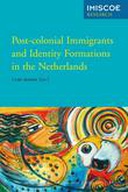This book explores the Dutch post-colonial migrant experience within the context of a wider European debate. Over 60 years and three generations of migration history is presented, while also surveying an impressive body of post-colonial literature, much of which has never reached an international audience. While other research focuses on one or, at most, two groups, post-colonial migrants are treated here as a distinct analytical category with a unique relationship to the receiving society. After all, over 90 per cent were Dutch citizens before even reaching the Netherlands, as they did in huge waves between 1945 and 1980. Together they constitute 6 per cent of today’s Dutch population. So, how did they form their identities? What were relationships with locals like? How have second and third generations responded? Post-Colonial Immigrants and Identity Formations in the Netherlands offers the germane scholarship on one particular country with a particularly rich history to readers worldwide.
Dit boek schetst een uniek beeld van de immigranten die tussen 1945 en 1980 vanuit de voormalige koloniën naar Nederland kwamen. De migranten hadden vóór hun komst allemaal een bijzondere relatie met het land van bestemming. Meer dan negentig procent van de migranten was Nederlands staatsburger voordat ze naar Nederland kwamen. Daarnaast plaatst de auteur zijn onderzoek in de context van een bredere Europese discussie. Hoe vormden de immigranten hun identiteit? Wat was hun relatie met de autochtone bevolking? Hoe reageerden de tweede en derde generaties?
This book is included in DOAB.

